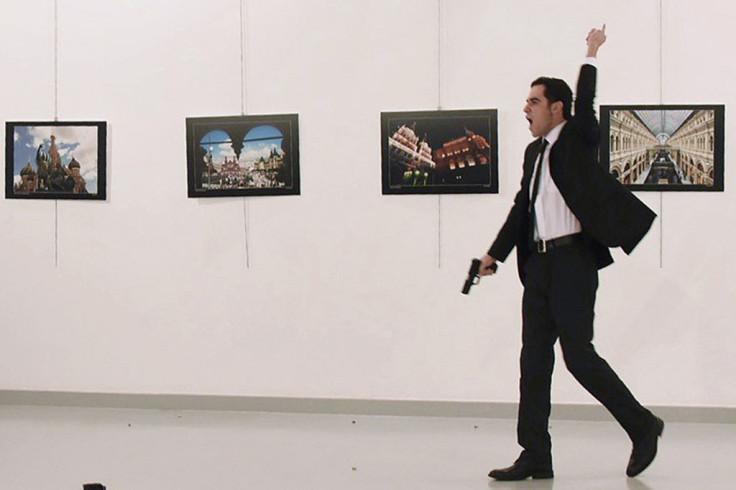Turkish MPs allege ties between Russian ambassador's killer and banned Gulenist movement
Claims come as Russian investigators arrived in Ankara to investigate assassination of Andrey Karlov.

The off-duty police officer who assassinated the Russian ambassador to Turkey may have been a member of the banned Gulenist movement, Turkish politicians have claimed.
The movement started by US-based cleric Fethullah Gulen is banned in Turkey, and was accused of instigating June's failed military coup.
Members of the sect claim they are being persecuted and illegally detained by the Turkish government, and Gulen has denied his followers instigated the coup.
The claims comes as a team of 18 Russian officials arrived in Ankara to take part in the investigation into the killing.
On Monday black suited police officer Mevlut Mert Altintas, 22, shot dead ambassador Andrey Karlov as he was delivering at a speech at an exhibition opening in Turkish capital Ankara, with the killing caught on video.
"Don't forget Aleppo! Don't forget Syria!" said Altintas after he shot dead Karlov.
Kani Torun, an MP with Turkey's ruling Justice and Development Party (AKP) and deputy chairman of the parliament's foreign affairs committee, told Al Jazeera there was no evidence that Altintas was connected with groups fighting in Syria.
"Accordingly, the only likely culprit for this attack is FETO. They have been very active in police forces," Torun said, using an acronym for the movement as a designated terror group.
In the wake of the attack, the mayor of Ankara, Melih Gokcek, also sought to link Altintas to the Gulenist movement, reported Middle Eastern Eye.
Gulen, who is a political exile in the US who Ankara has demanded Washington extradites to face charges, condemned the assassination in a statement: "No terrorist act can be justified, regardless of its perpetrators and their stated purposes.
"It is the expectation of the Turkish people and the world that the government investigate the circumstances of this incident, identify those who aided the perpetrator and take the necessary precautions so that such an attack cannot be staged in the future," he said.
Tens of thousands of state and military employees allegedly linked to the Gulenist movement were arrested or sacked after the 15 July coup.
Gulen continued: "Turkish and international experts repeatedly have pointed out the deterioration of security and counter-terrorism efforts due to the Turkish government's assigning hundreds of counter-terrorism police officers to unrelated posts, as well as the firing and imprisoning many others since 2014."
Ege Seçkin, an analyst at IHS Markit told IBTimes UK there was " no precedent for Gülenists engaging in political assassinations."
"It is far more likely that the killer was inspired by jihadist ideological leanings and acted either as part of a broader Salafi network or on his own initiative.
Turkey's about-face in the Syrian proxy war, driven home with the recent symbolic loss of Aleppo, has given rise to widespread disillusionment in the government's Islamist support base. As such, it raises the risk of similar incidents where home-grown jihadists decide take matters into their own hands," said Seçkin.
Turkish authorities have arrested seven people for questioning in connection with the assassination, including his parents, sister, roommate and three other relatives, Anadolu reported.
Both Russia and Turkey said that the killing would not affect their efforts to resolve the Syria crisis, and their shared commitment to fighting terrorism. The assassination has been described by the Russian Foreign Ministry as a "terrorist" act.
© Copyright IBTimes 2025. All rights reserved.




















